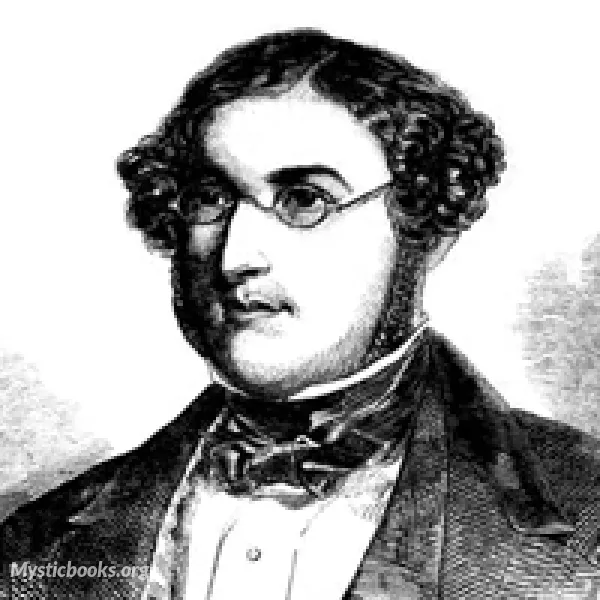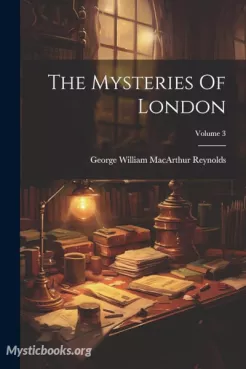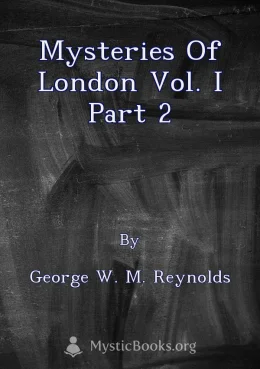
Timeline
Title
Country/Nationality
George W. M. Reynolds
George William MacArthur Reynolds stands as a prolific figure, churning out a vast body of work that spanned genres, challenged social norms, and entertained the masses. His life, marked by both triumph and controversy, mirrors the tumultuous era in which he lived.
Early Life and Literary Awakening
Born into a humble family in London, England, on July 23, 1814, George William MacArthur Reynolds displayed an early aptitude for language and writing. Despite limited formal education, he devoured books and immersed himself in the world of literature, honing his craft and developing a keen eye for social commentary.
Reynolds's literary awakening coincided with a period of significant social and political upheaval in England. The Industrial Revolution was transforming the nation, bringing about rapid urbanization, economic disparities, and growing class tensions. Reynolds, acutely attuned to these changes, found his voice as a writer who could both entertain and challenge the status quo.
Prolific Writer and Social Critic
Reynolds's literary output was nothing short of remarkable. Over his career, he penned an estimated 100 novels, serialized in penny dreadfuls, a popular form of mass-market literature that catered to the working class. His stories, often characterized by sensational plots, daring characters, and social commentary, captivated readers and propelled him to fame.
Through his novels, Reynolds tackled a wide range of social issues, including poverty, crime, exploitation, and the plight of the working class. He exposed the injustices of the time, challenged the prevailing social order, and advocated for reform. His works, often criticized by the establishment for their radical themes, found a receptive audience among the masses, who resonated with his fearless portrayals of their struggles and aspirations.
Notable Works and Legacy
Reynolds's most famous work, "The Mysteries of London," a serialized novel published in 1844-1848, became a sensation, captivating readers with its intricate plot, suspenseful twists, and vivid depictions of London's underworld. The novel, a scathing critique of social ills and the exploitation of the poor, cemented Reynolds's reputation as a leading voice of social commentary through fiction.
Reynolds's legacy extends beyond his literary achievements. He played a significant role in shaping the development of penny dreadfuls, a genre that provided affordable entertainment and social commentary to the working class. His works, though often dismissed by literary critics, captured the imagination of the masses and reflected the concerns and aspirations of the time.
Philosophical Underpinnings
Reynolds's philosophy was deeply rooted in social justice and egalitarianism. He believed in the inherent dignity of all individuals, regardless of social status or economic standing. His works championed the cause of the working class, exposing the injustices they faced and advocating for their rights and welfare.
Reynolds's writings were also influenced by a strong sense of moral purpose. He believed that literature could serve as a powerful tool for social change, exposing societal ills and promoting moral values. His works, though often sensational and melodramatic, were infused with a sense of moral responsibility, challenging readers to confront the injustices of their time.
Death and Remembrance
George William MacArthur Reynolds passed away on June 20, 1879, leaving behind a vast literary legacy that continues to captivate readers and scholars alike. His works, once dismissed by mainstream critics, are now recognized for their historical and social significance, providing a window into the tumultuous era in which he lived.
Reynolds is remembered as a prolific writer, a social critic, and a champion of the working class. His works, though often sensational and melodramatic, reflected the concerns and aspirations of the time, challenging societal norms and advocating for social justice. His legacy lives on in his literary contributions and his unwavering commitment to using literature as a tool for social change.
Books by George W. M. Reynolds

The Mysteries of London Vol. III
Delve into the dark underbelly of London, where secrets lurk in every shadow and danger lurks around every corner. George W. M. Reynolds's captivating novel, "The Mysteries of London Vol. III", takes you on a thrilling journey through the city's laby...

Mysteries of London Vol. I part 1
The Mysteries of London was a best-selling novel in mid-Victorian England. The first series was published in weekly instalments from 1844-46, priced at a penny each. Serialised novels sold in this way were known as Penny Dreadfuls … without any cla...

Mysteries of London Vol. I part 2
The Mysteries of London, a penny dreadful serialized in the mid-19th century, plunges readers into the shadowy underbelly of Victorian London. Through intricate plots and suspenseful twists, the narrative exposes the social ills and moral complexitie...

Mysteries of London Vol. II
This volume continues the sprawling narrative of "Mysteries of London," a popular Victorian novel that delves into the underbelly of London society. It explores themes of poverty, wealth, and social injustices, weaving together tales of crime, myster...

Wagner, the Wehr-Wolf
This book follows the story of Wagner, a poor shepherd in the Black Forest, who makes a pact with a supernatural entity to gain youth and wealth. However, this bargain comes at a price: Wagner transforms into a ravenous wolf once a month. The story u...

Mysteries of London Vol. IV
Known as "Penny Dreadfuls", these novels were serialized in weekly installments and offered readers entertainment and excitement in the form of vice, poverty, wealth, virtue, mystery, romance, and scandal in every combination, reaching a mass audienc...